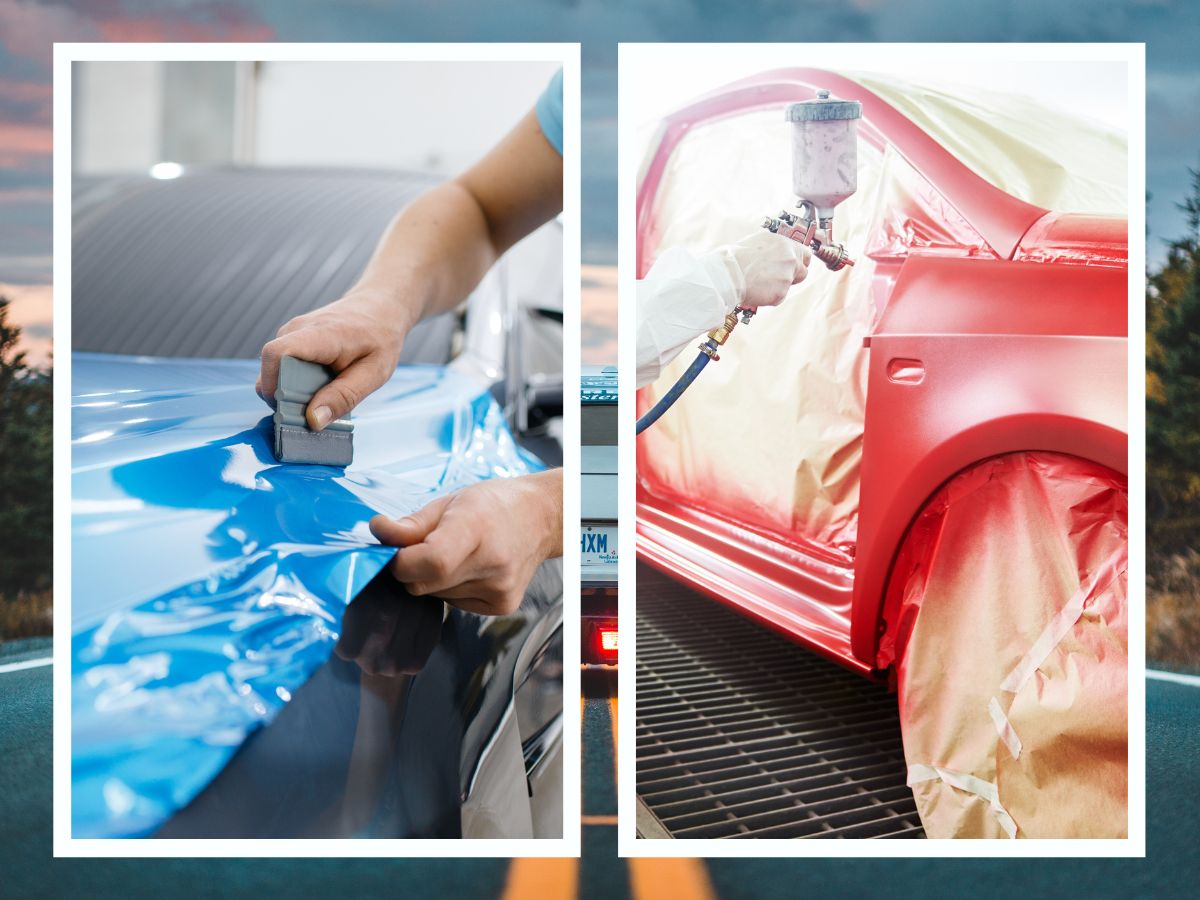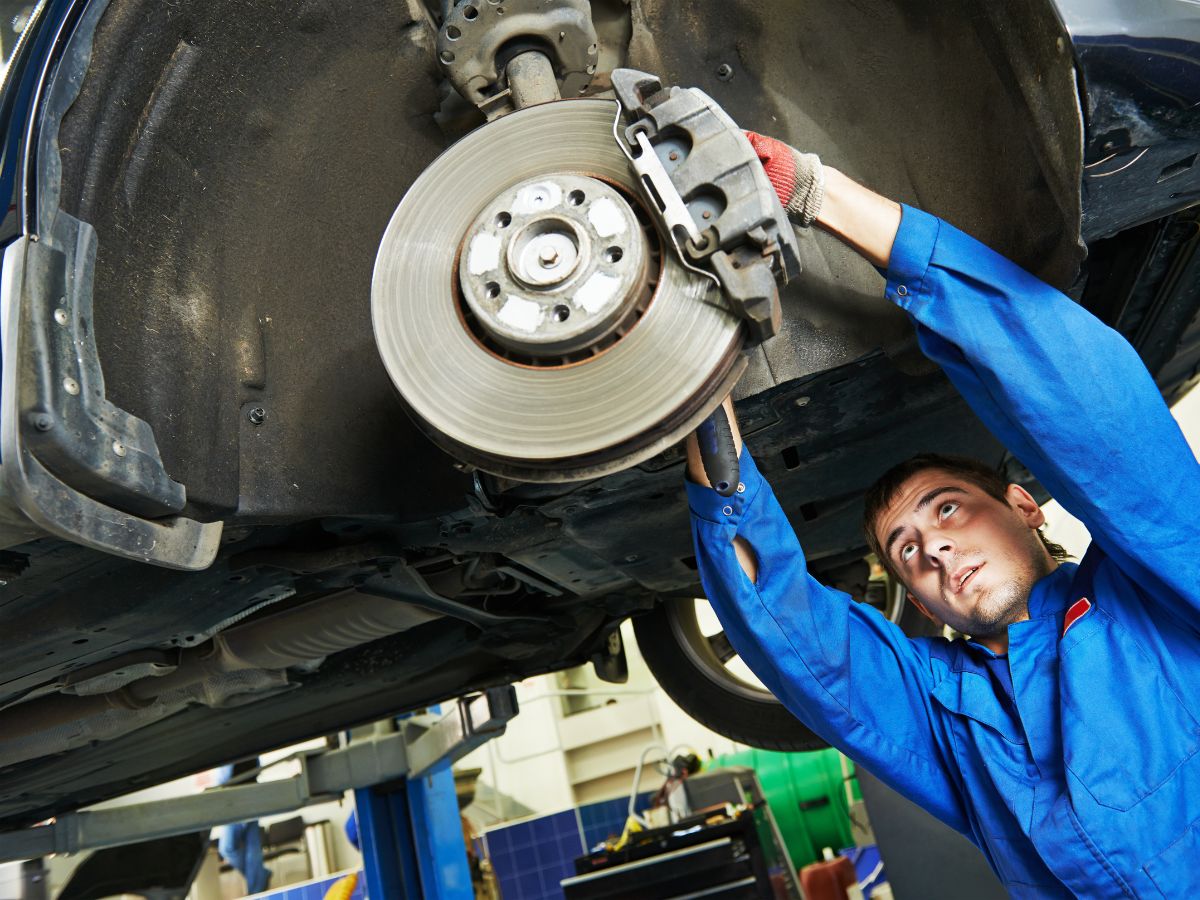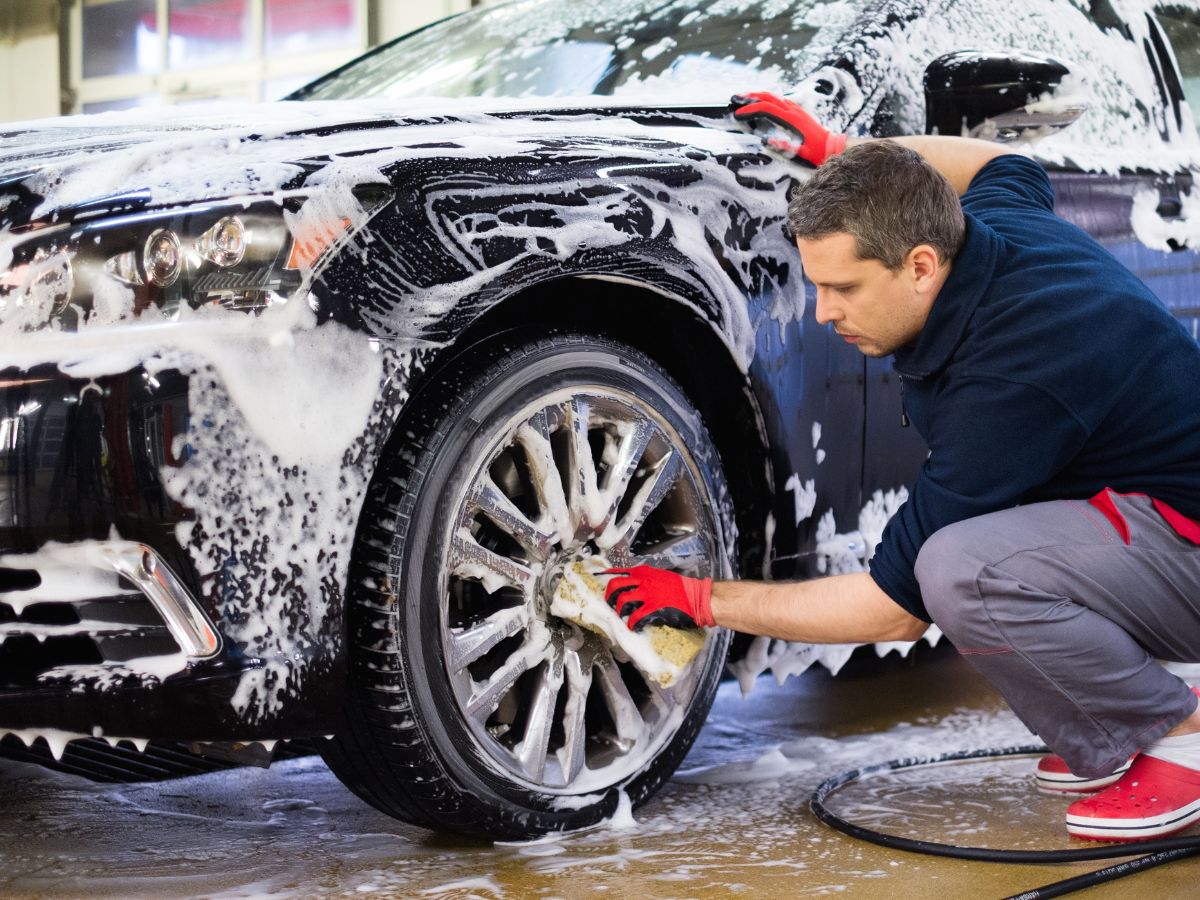Customizing your car's appearance is an exciting way to make it truly your own. Two popular options for changing up your car's look are wrapping or repainting. But what's the difference, and which one makes more financial sense for your needs? We'll compare the costs of vinyl wrapping versus paint to help you decide.
Wrapping a Car Can Be Cheaper Than Repainting
One major factor to consider when weighing wrapping versus painting is the cost.
A high-quality full vinyl car wrap typically ranges from $2,000 to $5,000 on average. Partial wraps, like just the hood or roof, start around $500.
In contrast, a full car paint job usually runs $3,000 to $10,000 or more. So wrapping tends to be the more budget-friendly option for completely changing your car's appearance.
Key Factors That Determine Wrap Costs
Several variables affect the final price tag for wrapping your ride:
- Vehicle size - Larger vehicles require more material and labor.
- Wrap coverage - Full wraps cost more than partial ones.
- Design complexity - More intricate, custom designs are pricier.
- Materials - Specialty vinyls like chrome, matte, or textured can add cost.
- Location - Prices range based on geographic area and local demand.
- Shop reputation - More experienced installers may charge higher rates.
So the same job could fluctuate in cost quite a bit depending on your specific project. Get quotes from a few reputable wrap shops before deciding.
Painting Offers More Permanent Results
The major trade-off with wraps compared to paint is longevity.
A quality paint job should hold up for 10-15 years or more before needing work.
On the other hand, most vinyl wraps last 5-7 years before wear and tear-like cracking become visible. At that point, you'll have to pay to have your car re-wrapped if you want to maintain the look.
So if you're interested in a permanent, lifelong color change that can be touched up as needed, painting is the way to go. Wraps are better for temporary transformations you may want to change up after a few years.
Maintaining a Wrap vs. Paint Job Differ
Once your car is wrapped or painted, some care and maintenance will be required to keep it looking its best:
- Wrapped vehicles need frequent washing to avoid dirt buildup and should be coated with protectants to resist fading. Avoid abrasive cleaners or brushes.
- Painted cars can be cared for like normal, but avoid car washes or detailing tools that could scratch the finish. Wax at least twice a year.
- Paint chips and scratches can be touched up, while damage to wraps may require full replacement.
So wraps require a bit more diligence to keep clean and protected. But paint isn't indestructible either, and needs washing and waxing to maintain the quality finish.
Other Factors to Consider Between Wraps and Paint
Beyond just costs and longevity, a few other considerations may help you pick between wrapping or painting:
- Customization - Wraps offer nearly endless color and design options since the vinyl is printed. Paint is limited to solid colors and basic graphics.
- Convenience - Wraps can be installed and removed fairly quickly without affecting the underlying paint. Paint changes are permanent and time-consuming.
- Environmental impact - Wraps are reusable and recyclable. Spray painting generates chemical emissions.
- Resale value - Paint will likely help a car retain more value long-term versus wraps which may seem dated later.
Weigh what's most important for your specific car and budget to narrow down the best choice. Many owners try wraps first since they're temporary, then paint later on if they want something permanent.
When Does Painting Make More Sense Than Wrapping?
For certain situations, it pays to skip the wrap and go straight for a fresh paint job:
- You want a permanent, multi-year color change.
- Your existing paint is faded, damaged, or needs body work.
- You're looking to sell your car soon and want to maximize resale value.
- You need repairs covered by insurance like after an accident.
- You want a show-quality finish and gloss that wraps can't quite match.
- You don't mind spending more upfront for long-lasting results.
Of course, every car and owner's needs are different. But for longevity, quality and resale value, paint remains the gold standard if you can afford the higher initial cost.
Wrapping Makes Sense When:
Here are common scenarios where vinyl wrapping is the smarter route:
- You want a temporary or seasonal change to your car's look.
- You're on a tight budget but want a dramatic transformation.
- You want a unique, custom design that would be difficult to paint.
- You need a quick turnaround without your car being stuck in a paint shop for weeks.
- You want to protect your factory paint and resale value underneath.
- You don't mind re-wrapping every 5-7 years to maintain the look.
For cost-effective customization without long-term commitment, wraps can't be beaten. Just account for periodic replacement down the road.
Frequently Asked Questions About Car Wrapping Costs
Still, debating between a wrap or paint for your ride? These common questions can help provide more insights.
How much does it cost to wrap a small or midsize car?
For compact and midsize cars like sedans or hatchbacks, plan around $2,500 to $4,500 for a full wrap. Partial wraps range from $500 to $1,500 depending on coverage area and design details. High-end specialty materials could push costs higher.
What is the typical cost to wrap an SUV or truck?
Because of their larger surface area, full wraps on SUVs and trucks normally run $3,500 to $6,000. Again, partial wraps can lower costs to $750 to $2,000. Bigger and extended cab models at the higher end of those ranges.
How much does it cost to wrap a sports car?
Low-slung sports cars have less overall surface area so full wraps cost a bit less than SUVs. Plan for $3,000 to $5,000 for a complete sports car vinyl wrap. Complex curves and angles may add labor time too.
Can I save money by wrapping a car myself?
DIY wraps using store-bought vinyl can save on labor, but results are harder to perfect. Materials alone will run $500 to $1,500 for a full wrap. While not impossible for a novice, complex jobs often have unsatisfactory outcomes minus professional installation.
Does car color affect wrapping prices?
Darker colors like black or blue tend to show imperfections more easily and require more meticulous wrapping work. White or silver vehicles are simpler. So shops often charge a $200 to $500 color upcharge for difficult paint colors, if not wrapping white or lighter cars in black.
Key Takeaways on Car Wrap Costs:
- Full vinyl wraps costs $2,000 to $5,000 on average based on the vehicle size and complexity. Partial wraps run $500 to $1,500.
- Painting a car can run $3,000 to $10,000 for a full respray so wraps are usually cheaper.
- Key factors affecting wrap prices are the design, materials, vehicle size, location, and installer.
- Wraps last around 5-7 years versus 10-15 years or more for quality paint.
- Both wraps and paint require regular maintenance like washing and protection to look their best.
- For permanent dramatic changes focused on longevity and resale value, paint is generally better.
- Wraps provide short-term customization and cost savings but need replacing after several years.
Knowing expected wrapping costs and how they compare to painting helps guide decisions. Consider your budget, timeline, desired designs and personal priorities to pick the best option. With proper care, both wraps and paint can make your car uniquely yours.




Leave a comment
This site is protected by hCaptcha and the hCaptcha Privacy Policy and Terms of Service apply.